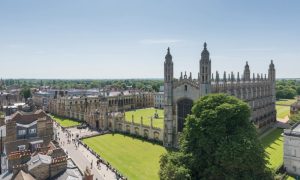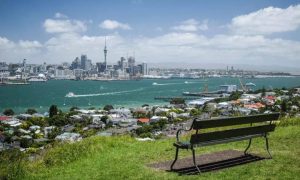Japan is a popularOverseas Immigrationdestinations that attract people from all over the world to live and work. Whether it's for better career development or to enjoy quality social benefits and living environment, more and more people are choosing toimmigrantsJapan. However.Immigration to JapanIt is not just about going through the visa application process, but it is also about being fully aware of the costs that may be involved in the immigration process as well as the cost of living. This article will focus onImmigration to JapanThe top five things you need to know about costs to help you plan your finances adequately.
1. Visa application fees
Immigration to JapanThe first step in the process is usually obtaining the right visa, and the cost of different types of visas varies widely. Visa fees are an essential part of every immigration program and usually include the following categories:
- work visa: A work visa is the main way most people choose to immigrate to Japan. Depending on the type of work, the visa application fee is generally between3,000 yen to 10,000 yenbetween (approximately RMB 200 to 700). Additional administrative costs may also be involved if the applicant's work visa is a long-term residence visa.
- Highly talented person visa: This category of visa is designed to attract highly skilled and educated foreign talent. Although the application process is more cumbersome, the fees are roughly similar to those of a regular work visa and are usually in the range of5,000 yen to 10,000 yenBetween.
- student visa: If you are immigrating to Japan for the purpose of studying, the cost of a student visa will be different. The visa fee is approximately4,000 yen to 6,000 yenIn addition, additional documents such as language scores and proof of funds may be required to apply for a student visa.
- Family visas: If you are a working visa holder or a highly talented person visa holder and want to bring your family to Japan, you will need to pay a fee when applying for a family visa. The approximate fee for a family member visa is3,000 yen to 6,000 yenBetween.
Before applying for a visa, in addition to the visa fee, you should also prepare other related documents, such as proof of academic qualifications, work contracts, and proof of financial resources, etc. These additional documents may add a certain amount of fees.
II. Housing costs
The housing market in Japan is different from many countries, especially in large cities such as Tokyo and Osaka, where the cost of housing is high. Housing is one of the biggest expenses when immigrating to Japan. The cost of housing depends largely on the city of residence, type of housing, and geographic location. Below are the costs for different types of housing:
- Rents in major cities such as Tokyo and Osaka: In central Tokyo, the monthly rent for a one-bedroom apartment (1K or 1DK) is around80,000 yen to 150,000 yen(about RMB 5,000 to 10,000 yuan). If you choose an area a little further away from the city center, the rent will be cheaper, usually between50,000 yen to 80,000 yenBetween.
- Rent in other citiesIn smaller cities such as Kyoto and Sapporo, rents are generally low, with a one-bedroom apartment costing roughly $10,000 per month.40,000 yen to 80,000 yenBetween.
- additional surcharge: In addition to the base rent, there are some additional costs associated with renting an apartment, such asmonetary gift,margin (in derivative trading),brokerageetc. These fees are usually paid in a lump sum prior to renting and cost approximatelyRental for 1 month to 3 monthsThe
The cost of renting an apartment is one of the most important expenses to consider after immigrating to Japan. To save money, you can choose to share an apartment, which is a common and economical option, especially when you first arrive in Japan.

III. Daily living expenses
The cost of living in Japan is relatively high, especially for daily expenses such as food, transportation and medical care. Below is a reference to some of the major costs of living:
- Food costs: Food expenses vary according to individual eating habits. In general, a person's monthly food expenditure is about30,000 yen to 50,000 yen(approximately RMB 2,000 to 3,500). This cost increases further if one eats out frequently.
- Transportation costs: Public transportation in Japan is very convenient, especially the subway and bus systems, but the corresponding transportation costs are high. In Tokyo, for example, the monthly cost of transportation is about10,000 yen to 15,000 yen. Transportation costs may be higher if you live away from the city.
- medical insurance: Japan has a very good medical system, but foreigners are required to have health insurance in accordance with regulations. According to Japanese government regulations, all residents (including foreigners) must enroll in theNational Health InsurancemaybeEmployee health insurance. The cost of health insurance is usually between15,000 yen to 30,000 yenThe amount depends on the individual's income and area of residence.
- utilities: Utilities in Japan are relatively inexpensive, usually costing less than $10 per month.10,000 yen to 20,000 yenBetween. If you are sharing a room, the cost will be reduced accordingly.
IV. Cost of education
If you are planning to move your children to Japan with you, the cost of education is another important aspect to consider. Japan's education system is different from that of many countries around the world, and the cost of schooling for foreign children is relatively high. Below are some basic education costs:

- public school: If the child attends a public school, the tuition is relatively low, costing about $4,000 per year.20,000 yen to 40,000 yen. However, other additional expenses such as fees for extracurricular activities and school uniforms will add to household expenditure.
- private school: Private schools have higher tuition fees, usually in the range of $10,000 per year.100,000 yen to 1,000,000 yenBetween them, it depends on the popularity of the school and the educational services offered.
- international school: For English-speaking families, international schools may be a more suitable option. However, international schools are usually more expensive, with annual tuition fees ranging from roughly $10,000 to $50,000 per year.500,000 yen to 1,200,000 yenBetween.
V. Taxes and other expenses
After immigrating to Japan, tax issues are also part of the necessary considerations. The tax system in Japan is relatively complex and involves various aspects such as income tax, consumption tax and local tax. Personal income tax rates range from 5% to 45% depending on income. In addition, local taxes and health insurance premiums need to be paid on time.
In addition to taxes, other costs of immigrating to Japan include social insurance premiums, pensions, and communication costs. Communication costs are generally monthly3,000 yen to 6,000 yenThe exact cost depends on the ISP used and the content of the package.
concluding remarks
Overall.Immigration Fees to JapanIt is multifaceted, and each item, from visa fees to daily living expenses, requires careful planning. Knowing these costs in advance and budgeting for them will help smooth the adjustment to your new life. Although the cost of living in Japan is relatively high, with its stable economy, quality education and healthcare system, immigrating to Japan is still an ideal choice for many people seeking a better life. Ensuring that you are aware of and have all the necessary financial arrangements in place before you plan to emigrate will help make your life in Japan smoother and more comfortable.






